College cheating scandal: Pimco tycoon jailed for 'chutzpah'
- Published
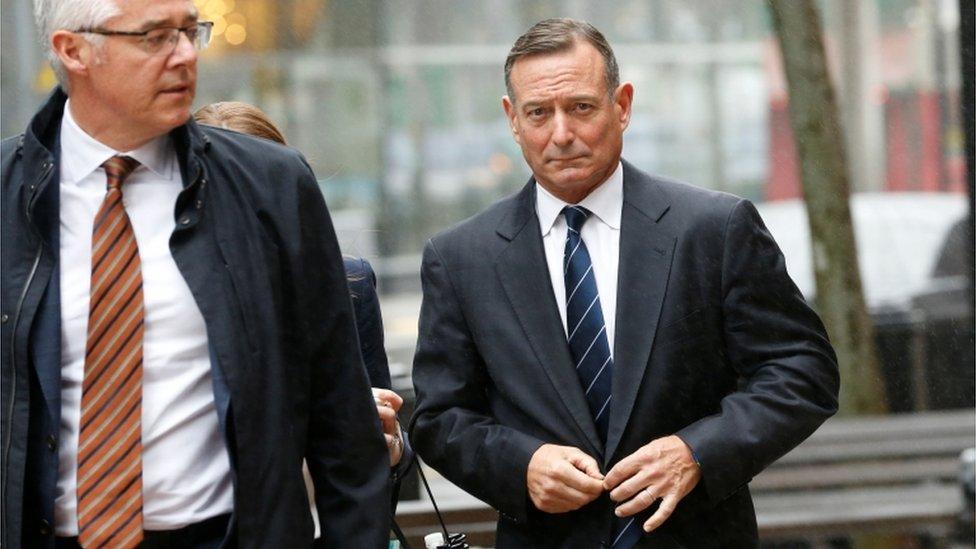
Douglas Hodge spent hundreds of thousands to get four of his children spots at elite schools
The former head of a top US investment firm has been sentenced to nine months in prison for his role in the US universities admissions scandal.
Retired Pacific Investment Management Company (Pimco) chief Douglas Hodge paid nearly $1m in bribes to get four of his children into top US colleges.
Hodge has received the longest sentence of the high-profile parents convicted so far.
Prosecutors called him one of the "most culpable" of the 35 parents charged.
In October, Hodge pleaded guilty to money-laundering and fraud.
He paid $850,000 (£660,000) in bribes over a decade to have four of his seven children win places at Georgetown University in Washington DC and the University of Southern California as fake athletic recruits.
Prosecutors say Hodge was also attempting to bribe his way into a seat for a fifth child at Loyola Marymount University in Los Angeles. They had asked for Hodge to serve two years in prison.
At the sentencing in Boston, Massachusetts, on Friday, Judge Nathaniel Gorton said: "There is no term in the English language that describes your conduct as well as the Yiddish term 'chutzpah.'"
The judge said he would have given a prison term of a year, as Hodge had participated in the scam repeatedly and for the longest time, but took into consideration Hodge's charity work.
Hodge, who retired from his position as Pimco's chief executive in 2016 before the scandal broke, has expressed remorse for his actions.
His defence team had argued the ex-CEO deserves a reduced sentence in light of his history of philanthropy.
They said he has given more than $30m to causes benefitting children around the world. But prosecutor Justin O'Connell dubbed this the "height of hypocrisy".
A tearful Hodge said in a prepared apology following the sentencing that "ego" or "status" did not drive his decision.
"Rather, I was driven by my own transformative educational experiences and my deep parental love."
The US college admissions scandal has seen dozens of defendants indicted for allegedly cheating and bribing to get their children into elite universities, like Yale and Stanford.
The parents - many of whom are celebrities or wealthy business executives - allegedly paid a firm as much as $6.5m (£4.9m) to cheat on students' college entrance exams or bribe top coaches to offer fake athletic scholarships.
The colleges have not been accused of any wrongdoing and are investigating the matter internally.
Fifteen parents are still contesting the allegations, and their trials are expected to take place later this year.
US actress Lori Loughlin, of the sitcom Full House is among the 50 total individuals - including coaches and other associates - is charged in the case, external.
So is Michelle Janavs, the heiress to the Hot Pockets (a microwavable snack) fortune.
Ms Loughlin and her husband, designer Mossimo Giannuli, allegedly paid $500,000 in bribes to have their two daughters admitted to the University of Southern California as fake rowing-team recruits. She has pleaded not guilty to the charges.
Desperate Housewives star Felicity Huffman was sentenced to 14 days in prison and a $30,000 fine last October for paying $15,000 to participate in an exam cheating scam.
The ringleader, William "Rick" Singer, 58, is co-operating with the authorities. Authorities say the scam earned him $25m between 2011-18 through his firm Edge College & Career Network.
Children of wealthy Americans often win places at elite universities after their parents make generous donations, an entirely legal practice.
Students react to cheating scam: "This is how we got into an elite college"
- Published13 March 2019
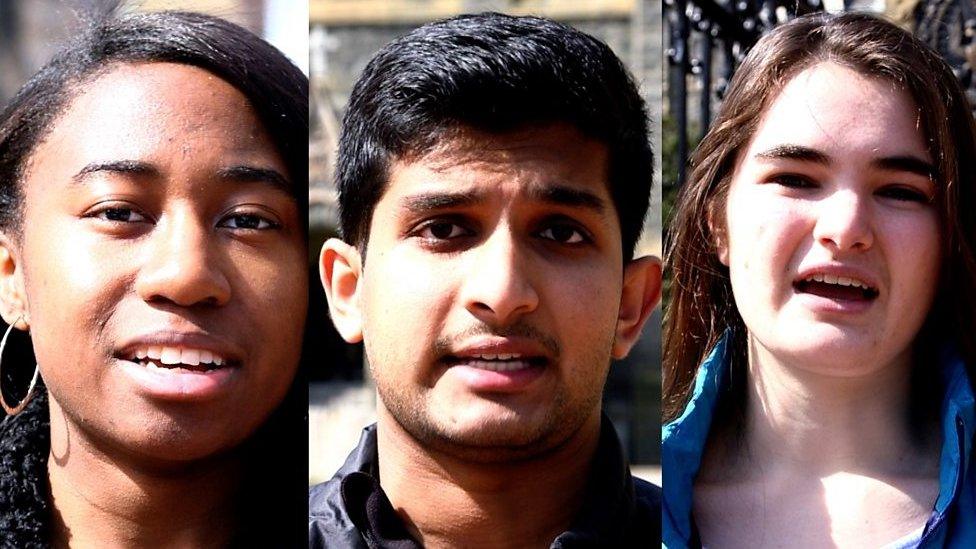
- Published15 October 2019
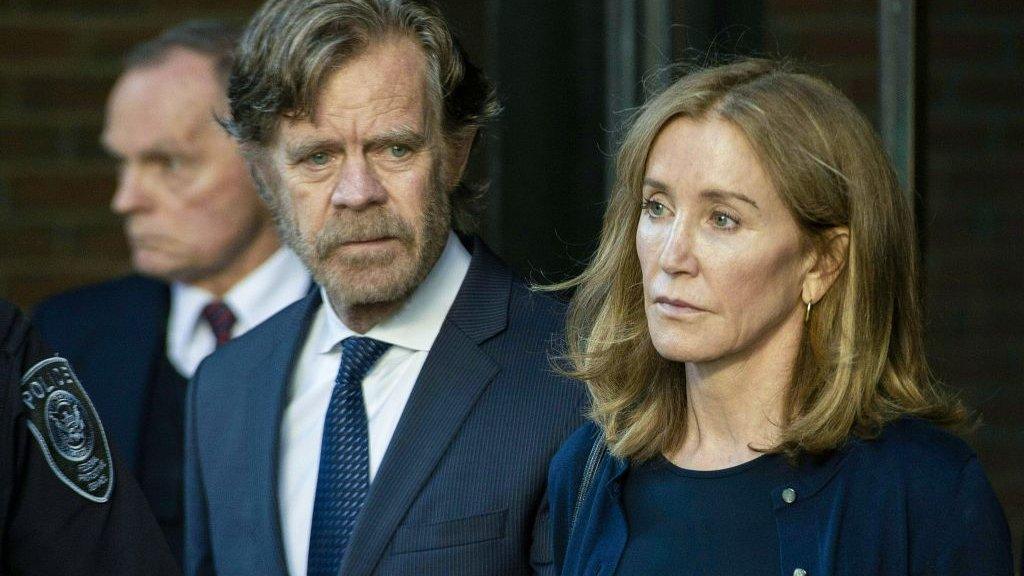
- Published8 May 2019
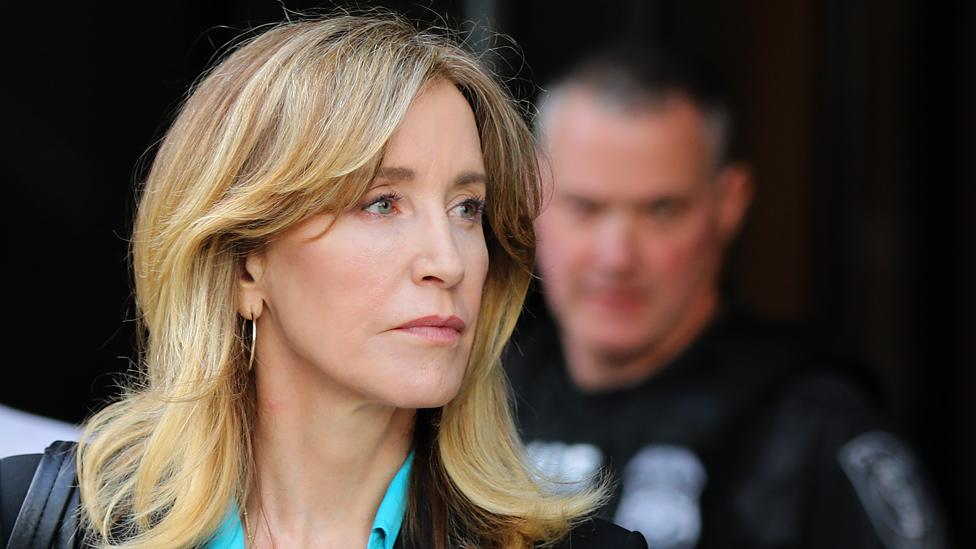
- Published13 March 2019
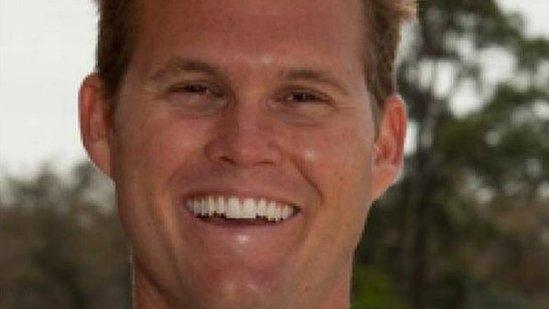
- Published15 March 2019
